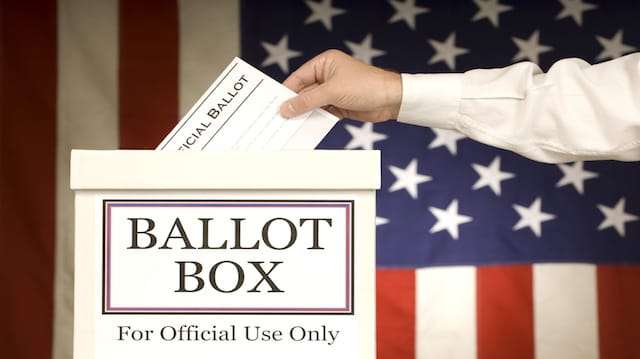The Volokh Conspiracy
Mostly law professors | Sometimes contrarian | Often libertarian | Always independent
Should the government weed out ignorant voters?

In a recent Washington Post column, David Harsanyi proposes that the government create a test to weed out ignorant voters:
Never have so many people with so little knowledge made so many consequential decisions for the rest of us.
A person need only survey the inanity of the ongoing presidential race to comprehend that the most pressing problem facing the nation isn't Big Business, Big Labor, Big Media or even Big Money in politics.
It's you, the American voter. And by weeding out millions of irresponsible voters who can't be bothered to learn the rudimentary workings of the Constitution, or their preferred candidate's proposals or even their history, we may be able to mitigate the recklessness of the electorate.
No, we shouldn't erect physical barriers to ballot access. Let's purchase more voting machines, hire additional poll workers, streamline the registration process, mail out more ballots for seniors and produce more "Rock the Vote" ads imploring apathetic millennials to embrace their civic duty.
At the same time, let's also remember that checking a box for the candidate whose campaign ads you like best is one of the most overrated obligations of the self-governed. If you have no clue what the hell is going on, you also have a civic duty to avoid subjecting the rest of us to your ignorance.
Unfortunately, we can't trust you.
Widespread political ignorance is a serious problem, and has already had a major impact in this year's election. As Harsanyi points out, large numbers of Americans cannot answer the basic questions on the very simple civics test we require immigrants to pass if they want to become citizens. In addition to immigrants who can't pass a civics test, we already exclude children, and many of the mentally ill from the franchise, due to their ignorance and poor judgment. Why not impose similar requirements on native-born adult citizens?
Such a proposal is not necessarily elitist. As Harsanyi puts it, "[u]nlike the many who depend on ignorant voters to wield and secure their power, I refuse to believe that working-class or underprivileged citizens are any less capable of understanding the meaning of the Constitution or the contours of governance than the supercilious 1-percenters."
While I am sympathetic to Harsanyi's idea, I ultimately cannot support it because I doubt that a real-world government can be trusted to implement it without bias. As I explain more fully in Chapter 7 of my book on political ignorance, and in a critique of a similar proposal by economist Bryan Caplan, a mandatory knowledge test could easily be skewed to favor supporters of the incumbent political party and weed out opponents. Powerful interest groups might also be able use their influence to skew the test in favor of people who support their agenda. Even if the test can be structured in such a a way as to avoid racial or ethnic bias (which is by no means certain), it is unlikely to avoid bias against the opponents of those in power. Unlike Caplan's proposal (which would give people incentives to do well on the test without excluding anyone from the franchise), Harsanyi's would actually deny the right to vote to those who fail. that magnifies the potential danger of bias.
But while the government cannot be trusted to forcibly weed out ignorant voters, Harsanyi is right to emphasize that such people should either increase their knowledge, or voluntarily abstain from voting. It is not wrong to be ignorant about politics. But it is wrong to inflict that ignorance on the rest of society. In addition to informing themselves of relevant facts, voters also have a duty to give serious consideration to opposing views, instead of (as many often do) acting like "political fans" who overvalue anything that reinforces their preexisting views, while dismissing or distorting opposing evidence.
As John Stuart Mill put it, voting is not merely a personal choice, but rather "the exercise of power over others." At the very least, such power should be exercised in a minimally responsible and informed way.
Sadly, I am not optimistic that ignorant voters will either increase their knowledge or voluntarily abstain from the ballot box. Even those who do make a serious effort to inform themselves might be at least partially stymied by the immense size and complexity of modern government, which makes it difficult to be well-informed about more than a small fraction of its activities. For these reasons, I fear we must look elsewhere for solutions to the problem of widespread political ignorance. But Harsanyi is right to remind us that political ignorance is a serious danger that requires more consideration than most of us are inclined to give it.


Show Comments (0)